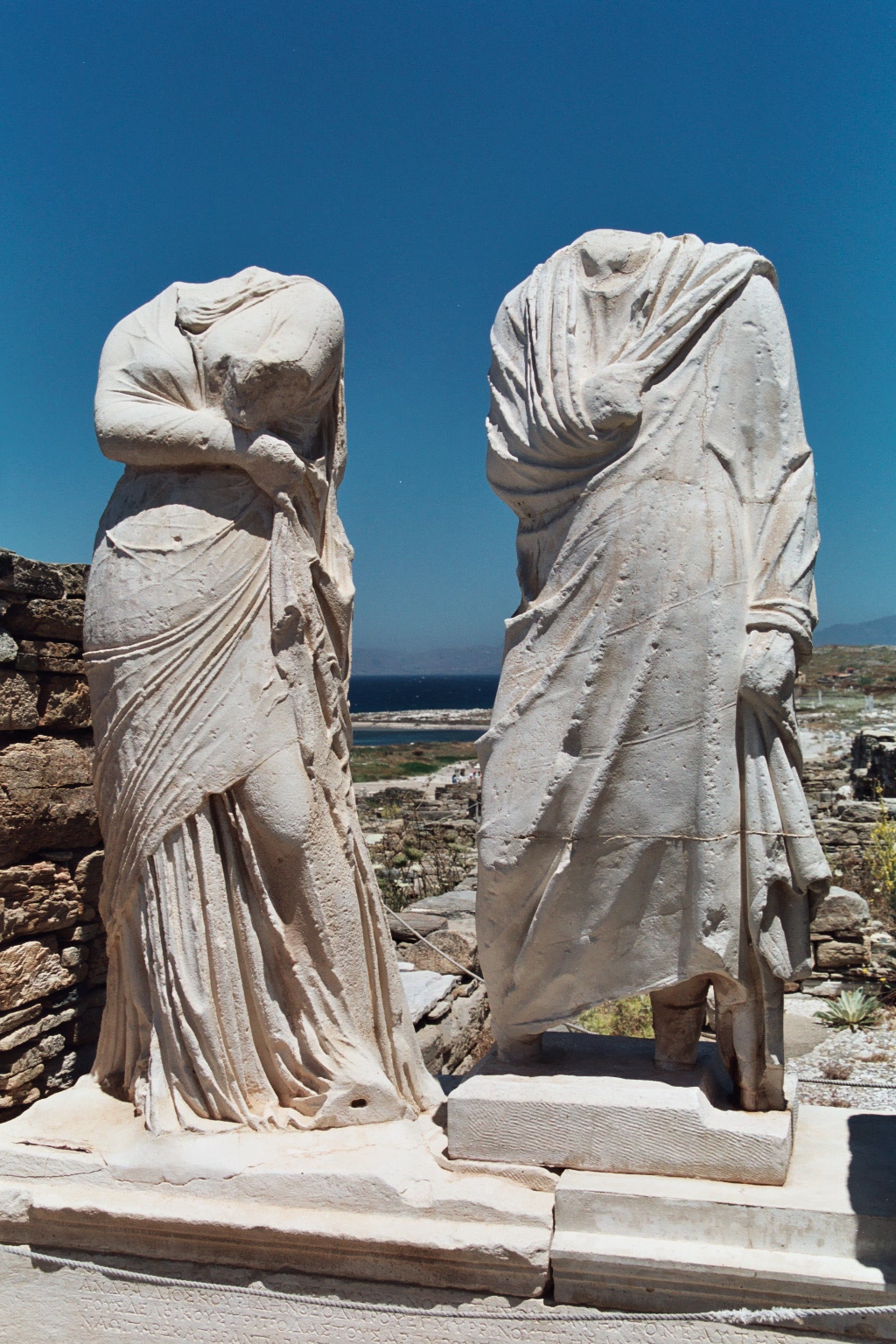|
Museum Of The History Of The Greek Costume
Museum of the History of the Greek Costume is a special interest museum in Athens, Greece. It was inaugurated by the former Minister of Culture, Melina Mercouri, in 1988 and is part of the Lyceum Club of Greek Women The Lykeion ton Ellinidon is a Hellenic women’s organisation, whose main constitutional aim is to preserve and promote Hellenic cultural heritage. It was established in 1911 by Callirhoe Siganou-Parren, a pioneer of the feminist movement in Greec ..., a non profit society founded in 1911. The museum's collections include Greek traditional costumes, jewellery, reproductions of minoan, classic and Byzantine clothes, as well as porcelain dolls with Greek costumes. References External linksCity of Athens(in Greek) [...More Info...] [...Related Items...] OR: [Wikipedia] [Google] [Baidu] |
Museum
A museum ( ; plural museums or, rarely, musea) is a building or institution that cares for and displays a collection of artifacts and other objects of artistic, cultural, historical, or scientific importance. Many public museums make these items available for public viewing through exhibits that may be permanent or temporary. The largest museums are located in major cities throughout the world, while thousands of local museums exist in smaller cities, towns, and rural areas. Museums have varying aims, ranging from the conservation and documentation of their collection, serving researchers and specialists, to catering to the general public. The goal of serving researchers is not only scientific, but intended to serve the general public. There are many types of museums, including art museums, natural history museums, science museums, war museums, and children's museums. According to the International Council of Museums (ICOM), there are more than 55,000 museums in 202 countrie ... [...More Info...] [...Related Items...] OR: [Wikipedia] [Google] [Baidu] |
Athens
Athens ( ; el, Αθήνα, Athína ; grc, Ἀθῆναι, Athênai (pl.) ) is both the capital and largest city of Greece. With a population close to four million, it is also the seventh largest city in the European Union. Athens dominates and is the capital of the Attica region and is one of the world's oldest cities, with its recorded history spanning over 3,400 years and its earliest human presence beginning somewhere between the 11th and 7th millennia BC. Classical Athens was a powerful city-state. It was a centre for the arts, learning and philosophy, and the home of Plato's Academy and Aristotle's Lyceum. It is widely referred to as the cradle of Western civilization and the birthplace of democracy, largely because of its cultural and political influence on the European continent—particularly Ancient Rome. In modern times, Athens is a large cosmopolitan metropolis and central to economic, financial, industrial, maritime, political and cultural life in Gre ... [...More Info...] [...Related Items...] OR: [Wikipedia] [Google] [Baidu] |
Greece
Greece,, or , romanized: ', officially the Hellenic Republic, is a country in Southeast Europe. It is situated on the southern tip of the Balkans, and is located at the crossroads of Europe, Asia, and Africa. Greece shares land borders with Albania to the northwest, North Macedonia and Bulgaria to the north, and Turkey to the northeast. The Aegean Sea lies to the east of the Geography of Greece, mainland, the Ionian Sea to the west, and the Sea of Crete and the Mediterranean Sea to the south. Greece has the longest coastline on the Mediterranean Basin, featuring List of islands of Greece, thousands of islands. The country consists of nine Geographic regions of Greece, traditional geographic regions, and has a population of approximately 10.4 million. Athens is the nation's capital and List of cities and towns in Greece, largest city, followed by Thessaloniki and Patras. Greece is considered the cradle of Western culture, Western civilization, being the birthplace of Athenian ... [...More Info...] [...Related Items...] OR: [Wikipedia] [Google] [Baidu] |
Melina Mercouri
Maria Amalia "Melina" Mercouri (, 18 October 1920 – 6 March 1994) was a Greek actress, singer, activist, and politician. She came from a political family that was prominent over multiple generations. She received an Academy Award nomination and won a Cannes Film Festival Best Actress Award for her performance in the film ''Never on Sunday'' (1960). Mercouri was also nominated for one Tony Award, three Golden Globes and two BAFTA Awards in her acting career. In 1987 she was awarded a special prize in the first edition of the Europe Theatre Prize. As a politician, she was a member of the PASOK and the Hellenic Parliament. In October 1981, Mercouri became the first female Minister of Culture and Sports. She was the longest-lived Minister of Culture in Greece - serving during the years 1981-89 and 1993 till her death in 1994, in all PASOK governments. Biography The Mercouri were a prominent Greek family, originating in Argolida. Its members had fought in the revolution of 1821 ... [...More Info...] [...Related Items...] OR: [Wikipedia] [Google] [Baidu] |
Lyceum Club Of Greek Women
The Lykeion ton Ellinidon is a Hellenic women’s organisation, whose main constitutional aim is to preserve and promote Hellenic cultural heritage. It was established in 1911 by Callirhoe Siganou-Parren, a pioneer of the feminist movement in Greece, with a focus on the right to education and employment. It operates on a foundation of volunteering, social action, and the research-based management of cultural heritage. It has 56 Annexes across Greece, 14 Bureaus abroad, and 4 Bureaus in Cyprus. Throughout its history it has been present in difficult times: during the Balkan Wars (by supporting the families of the deployed, and arranging for hospital equipment and nurse training); during the Greco-Italian War (by corresponding with soldiers and sending supplies, and tending to the hospitalised); during the Axis Occupation of Greece (by running soup kitchens and providing supplies to children and mothers, assisted by the International Association of Lyceum Clubs); and after the Turkish ... [...More Info...] [...Related Items...] OR: [Wikipedia] [Google] [Baidu] |
Museums In Athens
A museum ( ; plural museums or, rarely, musea) is a building or institution that cares for and displays a collection of artifacts and other objects of artistic, cultural, historical, or scientific importance. Many public museums make these items available for public viewing through exhibits that may be permanent or temporary. The largest museums are located in major cities throughout the world, while thousands of local museums exist in smaller cities, towns, and rural areas. Museums have varying aims, ranging from the conservation and documentation of their collection, serving researchers and specialists, to catering to the general public. The goal of serving researchers is not only scientific, but intended to serve the general public. There are many types of museums, including art museums, natural history museums, science museums, war museums, and children's museums. According to the International Council of Museums (ICOM), there are more than 55,000 museums in 202 countries ... [...More Info...] [...Related Items...] OR: [Wikipedia] [Google] [Baidu] |
Greek Clothing
Clothing in ancient Greece primarily consisted of the chiton, peplos, himation, and chlamys. Ancient Greek civilians typically wore two pieces of clothing draped about the body: an undergarment ( : chitōn or : péplos) and a cloak ( : himátion or : chlamýs). Ancient Greek clothing was mainly based on necessity, function, materials, and protection rather than identity. Thus, clothes were quite simple, draped, loose-fitting and free-flowing. Customarily, clothing was homemade and cut to various lengths of rectangular linen or wool fabric with minimal cutting or sewing, and secured with ornamental clasps or pins, and a belt, or girdle (: zōnē). Pieces were generally interchangeable between men and women.Adkins, Lesley, and Roy Adkins. ''Handbook to Life in Ancient Greece.'' New York: Facts On File, 1997. Print. However, women usually wore their robes to their ankles while men generally wore theirs to their knees depending on the occasion and circumstance. While no clothes ... [...More Info...] [...Related Items...] OR: [Wikipedia] [Google] [Baidu] |
Fashion Museums
Fashion is a form of self-expression and autonomy at a particular period and place and in a specific context, of clothing, footwear, lifestyle, accessories, makeup, hairstyle, and body posture. The term implies a look defined by the fashion industry as that which is ''trending''. Everything that is considered ''fashion'' is available and popularized by the fashion system (industry and media). Given the rise in mass production of commodities and clothing at lower prices and global reach, sustainability has become an urgent issue among politicians, brands, and consumers. Definitions The French word , meaning "fashion", dates as far back as 1482, while the English word denoting something "in style" dates only to the 16th century. Other words exist related to concepts of style and appeal that precede ''mode''. In the 12th and 13th century Old French the concept of elegance begins to appear in the context of aristocratic preferences to enhance beauty and display refinement, and , ... [...More Info...] [...Related Items...] OR: [Wikipedia] [Google] [Baidu] |
Museums Established In 1988
A museum ( ; plural museums or, rarely, musea) is a building or institution that cares for and displays a collection of artifacts and other objects of artistic, cultural, historical, or scientific importance. Many public museums make these items available for public viewing through exhibits that may be permanent or temporary. The largest museums are located in major cities throughout the world, while thousands of local museums exist in smaller cities, towns, and rural areas. Museums have varying aims, ranging from the conservation and documentation of their collection, serving researchers and specialists, to catering to the general public. The goal of serving researchers is not only scientific, but intended to serve the general public. There are many types of museums, including art museums, natural history museums, science museums, war museums, and children's museums. According to the International Council of Museums (ICOM), there are more than 55,000 museums in 202 countries ... [...More Info...] [...Related Items...] OR: [Wikipedia] [Google] [Baidu] |



